Editor's note: We
first met Penny when she wrote to us about a CNN photo gallery showcasing
disfigured children and stillborn babies affected by Agent Orange in Vietnam.
Penny spoke of the anger and sadness she felt over seeing CNN's "viewer
discretion" warning on the gallery. She was born with a disease that left
part of her own face malformed and felt compelled to reach out to us about the
children who simply look different. "How can I not speak up about
this?" she asked. "If not me, who will speak on behalf of these
children?" We invited her to educate us all by sharing her story and
allowing us to see the world through her eyes.
(CNN) -- As a little girl, she never got a valentine at
school parties.
As a teenager, she never had a best friend, a boyfriend or a
date.
As a woman, she's never had a relationship. She's never been
kissed.
Her dream to one day become a wife and mother is fading as
she grapples with the reality that it may never happen.
Penny Loker, 31, was born with hemifacial microsomia andGoldenhar
Syndrome, two birth defects that left her with a disfigured face. Hemifacial
microsomia causes a malformation of the ear and/or the structure of the lower
jaw. Goldenhar Syndrome is a congenital condition that produces abnormalities
of the head and the bones of the spinal column. It usually affects the
appearance of eyes, ears, facial bones and the mouth.
Both conditions are complex, as are their names. But for a
little girl facing a big world, the names were simple: Monster. Ugly. Freak.
Loker was raised in Waterloo, Ontario, Canada, in a home
where love and acceptance were given freely.
Her father died soon after Loker's first birthday. Her
mother, a strong, loving woman, readily took on the challenge of raising Loker
and her sisters. That included arranging for multiple surgeries at hospitals
far from home.
Loker's recoveries were lengthy and painful, recalls older
sister Crystal Loker. "But even then Penny had a positive attitude. She
was a trouper who kept her smile and didn't complain."
'Impaired Perceptions': Photographer rejects first
impressions
At home, Loker's looks were not an issue and she was treated
the same as her sisters. She knew she looked a bit different, and she knew it
caused her to be in the hospital a lot, but she had a child's innocence and
accepted it as normal.
When it was time to start school, she discovered how
different she actually was. She spent a lonely childhood excluded from nearly
everything. She had no friends. She accepted the name-calling as part of her
life and seemed to understand that crying or fighting back only made it worse.
So she quietly endured it.
She remembers that pain and humiliation well. "As an
adult, it's hard to stand by silently when you know what these kids are going
through," Loker says. "But it's equally difficult to speak out when
you don't feel empowered to do so."
As she got older, the name-calling was more often behind her
back than to her face. By the time she reached high school, she had learned
there would be no friends, parties or dates for a girl who looked like a freak.
"It hurt, but there was nothing I could do to change
it," she says.
While day-to-day encounters with strangers brought the same
hurtful stares and comments, Loker was used to it. Then came a day with such
cruelty it remains a vivid memory.
"For graduation my sister gave me a gift certificate
for a manicure and pedicure. I'd never had one before, and it was a wonderful
experience. I left the spa feeling truly pretty for the first time in my adult
life."
But less than a block from the salon, she encountered a
carload of boys who slowed to look at her and began pointing and calling her
names.
Distraught, she walked as quickly as she could to get away
from them, thinking all the while that she was not beautiful after all.
"The pretty nails made no difference at all. Shamed and
humiliated, I realized I was still the same girl that everyone made fun
of," she recalls. "I remember that day as one of the worst."
Talking to someone with a chronic illness
But time can ease all wounds, and her determined spirit
taught her to find the good around her.
She has a core group of girlfriends and relatives who
cherish her as she is. She speaks proudly of being able to provide for herself,
thanks to her job at Rogers Communications, where she spends her days handling
customer requests. The company was recognized this year as a diversity leader
corporation, a recognition that only adds to Loker's pride.
There are many adventures in life that she is hesitant to
embrace, even though she is physically able. She prefers not to shop alone. She
has never been on a true vacation, saying the thought of one is scary.
Yet it's a feat she is determined to accomplish. She is
saving now for a trip to California to visit either BlizzCon or Comic-con.
"I'm kind of a geek and play the online MMO World of
Warcraft with my sister and her husband, and we always talk about how cool it
would be to go there," she says. "People dress up so I would feel
'normal', not out of place."
She's quick to point out she has no interest in visiting a
theme park geared toward children, where she'd likely be subjected to stares as
parents attempt to answer questions about her.
She wishes she could open the dialogue about individuals
with malformations by educating people, especially children, whose natural
curiosity can eventually become cruelty if left unaddressed.
"Educating them early on would help them learn to be
more tolerant of others who are different. The ability to love, share, bring
happiness and help others is the real beauty of a person," she says.
"The exterior doesn't necessarily reflect the beauty
that often lives inside. And when people fail to remember that, they can miss
out on the love and friendship of a truly special person."
Crystal Loker agrees. "Penny is truly beautiful. She's
always seeing the best in others and never has an unkind word for anyone. In
Penny's world, others always come first. She's full of laughter and smiles.
When you spend a day with her, you go home feeling good about yourself."
Loker welcomes the opportunity to teach all of us to see
beyond the surface. But until then, she continues to hope for good days in her
own life, which for her means days when she is ignored.
"When I go out to dinner with my friends and no one
stares at me or asks to be moved to a table further away from me, that's a good
day," she says.
In spite of it all, Loker is quick to point out her many
blessings: Being able to share a home with her family, having a job she loves,
having good friends and a good health care system to help with the cost of a
lifetime of surgeries.
Her only regret?
"I have so much love to give and I would love to share
that with a family of my own. I understand it will probably never happen, and
I'm learning to accept it. But I am sad about it," she says. "It
feels like the one great loss in my life."

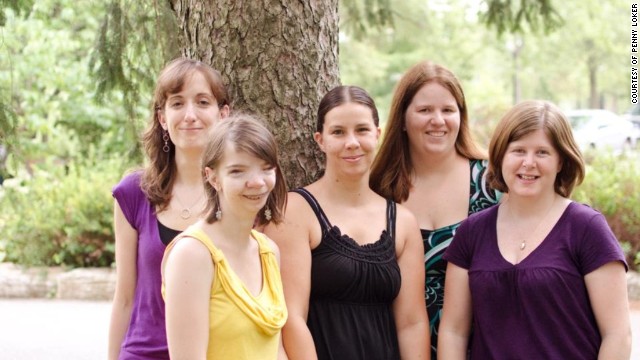
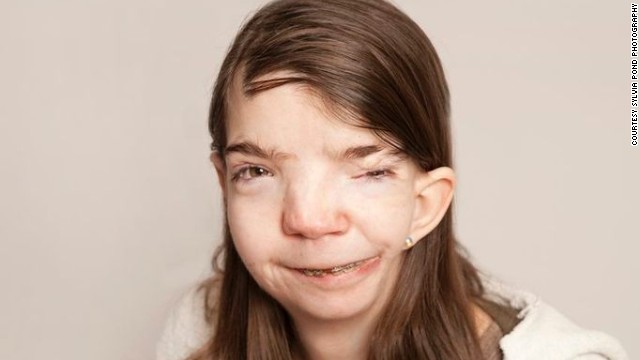
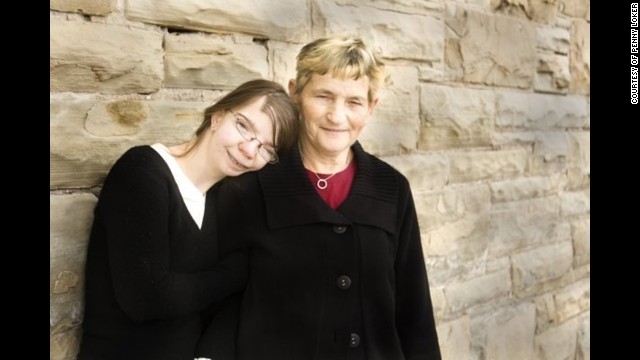
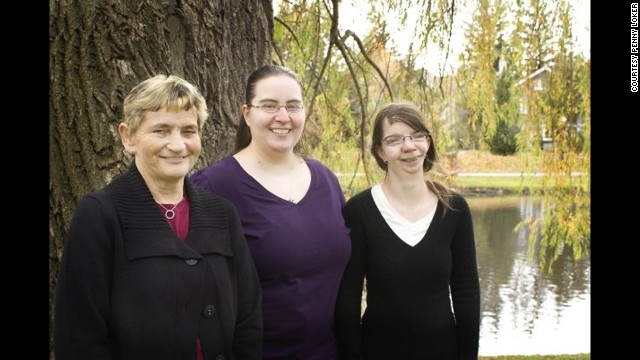
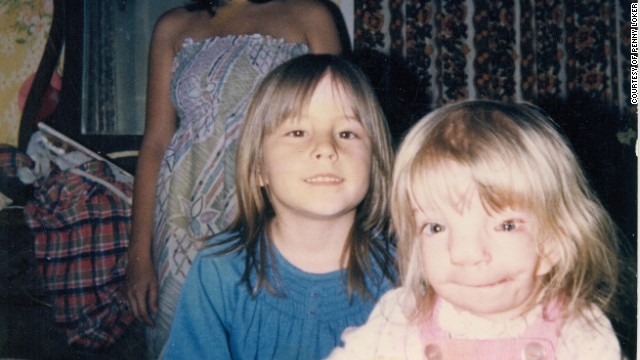
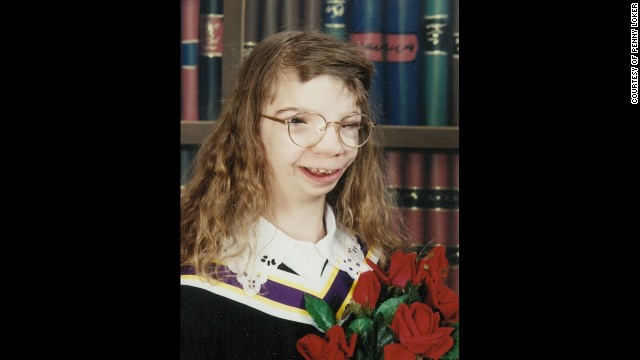
No comments:
Post a Comment